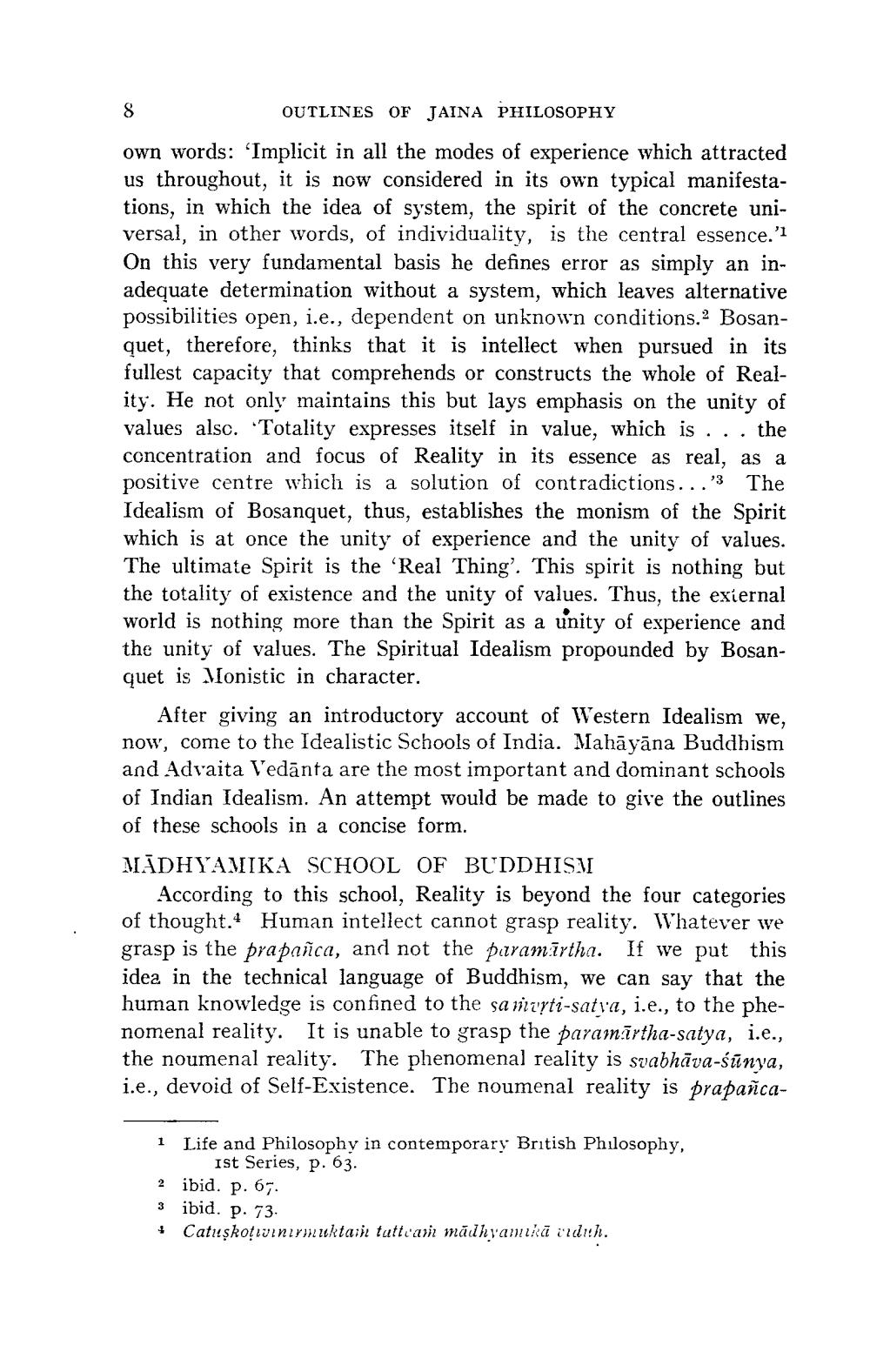________________
8
OUTLINES OF JAINA PHILOSOPHY
own words: 'Implicit in all the modes of experience which attracted us throughout, it is now considered in its own typical manifestations, in which the idea of system, the spirit of the concrete universal, in other words, of individuality, is the central essence.'1 On this very fundamental basis he defines error as simply an inadequate determination without a system, which leaves alternative possibilities open, i.e., dependent on unknown conditions.2 Bosanquet, therefore, thinks that it is intellect when pursued in its fullest capacity that comprehends or constructs the whole of Reality. He not only maintains this but lays emphasis on the unity of values alsc. Totality expresses itself in value, which is . . . the concentration and focus of Reality in its essence as real, as a positive centre which is a solution of contradictions..."3 The Idealism of Bosanquet, thus, establishes the monism of the Spirit which is at once the unity of experience and the unity of values. The ultimate Spirit is the 'Real Thing'. This spirit is nothing but the totality of existence and the unity of values. Thus, the external world is nothing more than the Spirit as a unity of experience and the unity of values. The Spiritual Idealism propounded by Bosanquet is Monistic in character.
After giving an introductory account of Western Idealism we, now, come to the Idealistic Schools of India. Mahāyāna Buddhism and Advaita Vedanta are the most important and dominant schools of Indian Idealism. An attempt would be made to give the outlines of these schools in a concise form.
MADHYAMIKA SCHOOL OF BUDDHISM
According to this school, Reality is beyond the four categories of thought. Human intellect cannot grasp reality. Whatever we grasp is the prapañca, and not the paramartha. If we put this idea in the technical language of Buddhism, we can say that the human knowledge is confined to the samurti-satya, i.e., to the phenomenal reality. It is unable to grasp the paramartha-satya, i.e., the noumenal reality. The phenomenal reality is svabhava-sunya, i.e., devoid of Self-Existence. The noumenal reality is prapanca
1 Life and Philosophy in contemporary British Philosophy, 1st Series, p. 63.
2 ibid. p. 67.
3 ibid. p. 73.
+
Catuşkotiinirmuktam tatteam mādhyamikā viduh.




